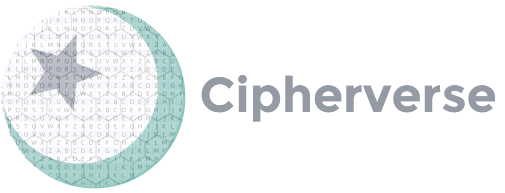Series Navigation
[ Part One: Important Warning ] [ Part Two: Asking The First Questions ] [ Part Three: First Examined Hadiths ] [ Part Four: The Question of Generations, Another Hint ]
.o0o.
Addendum – Can Jesus, the Mahdi and the dajjal surpass or even match The Avengers?
Manipulation of Prophecy The Future and YOU
[Part 1: Past Ummahs and Our Delusions – Part 2:Contrasting Present and Past – Part 3:The Trap and Background Music – Part 4:Miracles in the Seemingly un-Miraculous – Part 5:Conclusion, Crux and Solution]
Peace unto those who seek peace,
Allah willing you have considered our arguments and hints. To resume from where we left off our first question was whether we could find a divine unit of measurement, a period, by which to measure human communities and affairs through history. The period is a divinely mandated length and we found that the human generation was that unit of measurement: a constant value for all of humanity.
A generation does not yet give us a precise enough measurement unless we have a way of measuring a generation itself. This period itself must be a defined, exact and definite number. This number must be precise, regular and essential, a sine qua non. The period of an hour, for example, is an exact quantity, itself able to be broken down into exact numbers of smaller periods such as minutes and seconds. By this metaphor we seek an “hour” to measure of humanity’s “clock” itself. Every human community may be measured by this a divinely ordained “clock”. Each community, from families, clans, tribes, folk and peoples (Qawm, Aqwam), and nations (Milats and Ummahs.) is measured by generations composed of this precise time-span.
The themes and ideas in this series were developed over decades of rigorous and backbreaking intellectual labor. Leaving you hints but letting you search for an answer yourself is essential. This is not a superficial and speculative game; this series deals with matters critical to all of our futures, personal lives, hearts and souls. Without working for answers, when they are handed to you on plates and you do not personally explore the issues the end answers will be useless to your lives.
We know that there is a well established answer, established in the Sunnah and Qur’an. Among the favor of past nudges and hints, we indicate that the answer is explicitly related in numerous hadiths, and the age at which certain specific Prophets, alaihim salaam, were given Risalat – at which point their missions commenced – are also important.
We presented a couple of hadiths that concern the “Stages”, that is tabaqats, of the Ummah. We indicated that these hadiths were seen as weak – da’if – or worse in the eyes of some scholars and indicated that we will examine them hadiths in closer depth. By Allah’s leave we soon shall, giving more variants and information.
In defining the ages of human generations a critical concept is accountability. This age defining a human generation must include personal accountability for actions and intentions, and when such accountability begins and ends. This must cause us to closely examine human life-spans and death ages. Death is accountability’s final seal. Different ideas may be guessed at, but they fall short. For example some may decided to choose the age of, for example, 20. Others may decide to average out human life-spans, thinking that while people die at different ages, these ages can be averaged out. These fail, age 20 for reasons considered; averaging ages fails because you can not arrive at an exact and constant measure through human history.
Take tens of thousands of years of humanity, century to century, community to community, and realize that death ages vary wildly even between classes in specific communities and ages. This will skew any possible average. Stratified elites of city dwelling pagans may average wildly differently from their oppressed slaves and commoners. Rustic barbarians constantly on the move may average out entirely differently due to the collective rigors of their lives. Modern physical anthropology proves the back-breaking low life-expectancies of much of prehistoric humanity.
This is the crux of the issue:
– Is there a certain age in human lives at which one’s character is all but sealed?
– Is there a typical human norm in which, by a certain age, the vast majority of people are set in their ways so much that further education, advice, and experiences typically do not change them much in morals and character?
This consideration is important, ultimately what concerns us are the essential cast of one’s character and morals, not acquired naqali knowledge. Essential knowledge molds one’s character, external facts and datum do not.
At a certain age people are typically incorrigible in their ways. Unless severely challenged by a Transformative event or force, only Allah can rectify them. At that age you arrive at a prefiguration of your end and sealing state, and may Allah grant us a good one. This age will give us a steady benchmark of human lives, irrespective of their peoples’ life expectancy, which massively varies from community and age.
We will, by Allah’s leave and will, bring you proof and evidence of the solution to this matter. The evidences for the argument, the daleels, will be definitive, that is to say Qati. After presenting these proofs we will then turn to try to unravel the puzzle of the Ummah’s Tabaqaat
And Tawfiq is from Allah.
[ Part One: Important Warning ] [ Part Two: Asking The First Questions ] [ Part Three: First Examined Hadiths ] [ Part Four: The Question of Generations, Another Hint ]


